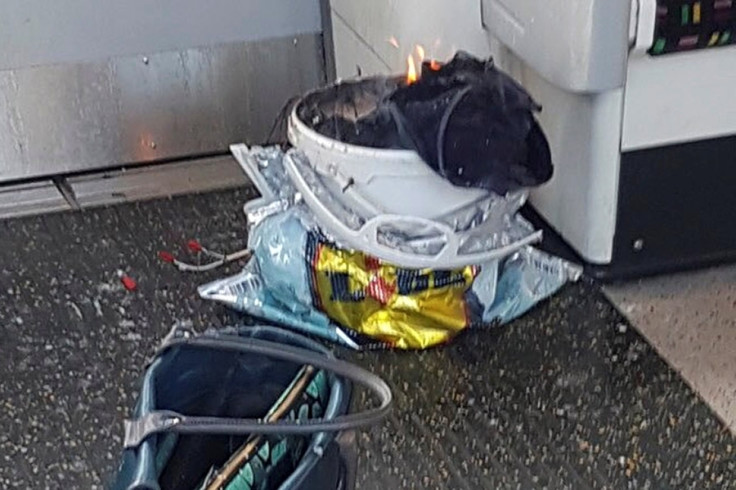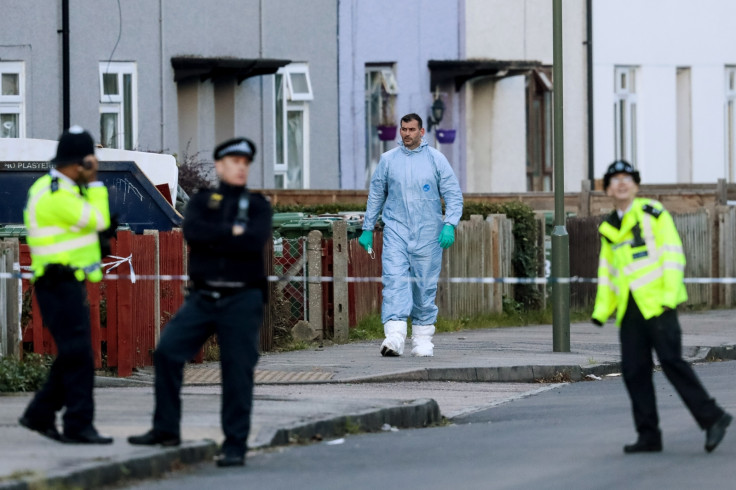UK lowers official terrorist threat level from 'critical' to 'severe'
The downgrading means authorities no longer believe an attack is imminent.
The British government lowered the country's official terrorist threat level Sunday after a second man was arrested in connection with the attack on a London underground train where a bomb partially exploded.
The downgrading of the threat level from "critical" to "severe" means authorities no longer believe an attack is imminent. The "severe" classification, the second highest level of alert, is based on the assessment that an attack is "highly likely."
Home Secretary Amber Rudd said the easing of the alert indicates that police and security services are making "good progress" in the sprawling investigation into the attack on a tube train that injured 30 people during the rush hour Friday morning.
Rudd cautioned that the investigation was ongoing.
Police announced the second arrest early Sunday, offering the clearest indication yet that authorities do not believe the person who planted the homemade bomb acted alone.
The first person arrested was an 18-year-old man who was taken into custody Saturday in the departure area of the port of Dover. The Metropolitan Police force said a 21-year-old man was arrested Saturday shortly before midnight in the west London borough of Hounslow.
The force said the second suspect was being held under the Terrorism Act and questioned at a south London police station Sunday, but has been neither charged nor identified.
Police on Sunday also launched an urgent search of a property in the southwestern suburb of Stanwell that authorities said was linked to the latest arrest.
They continued searching a home in Sunbury, another southwestern London suburb where neighbours were evacuated on Saturday.
During the attack on a stopped train at the Parsons Green station, a bomb hidden in a plastic bucket inside a supermarket freezer bag only partially exploded, sparing the city much worse carnage.

The two arrests indicate police and security services believe the attack was part of a coordinated plot, not the act of a single person.
"We are still pursing numerous lines of enquiry and at a great pace," Metropolitan Police counter-terrorism coordinator Neil Basu said.
Residents of the Sunbury neighborhood where an armed police search started Saturday were evacuated in a rush and kept away for nearly 10 hours before they were allowed to return to their homes.
The property belongs to an elderly couple who have for years taken in foster children, including refugees from conflict zones in Syria and Iraq.

The pair — Ronald Jones, 88, and his wife, Penelope Jones, 71 — have been honored by Queen Elizabeth II for their work with children in need of a stable home.
A friend, Alison Griffiths, said the Joneses are "great pillars of the community" who have taken in several hundred children in the last 40 years.
Neighbors said two young men had been staying with them recently. Police have not provided details about the extensive search, which began several hours after an 18-year-old suspect in the subway bombing was arrested at Dover's ferry port.
The Islamic State has said Friday's subway attack was carried out by one of its affiliated units. The improvised explosive device placed on the train only partially detonated, limiting the number of injuries.
The National Health Service says all but one of the 30 people treated for injuries has been released from the hospital. One person is still being treated at Chelsea and Westminster Hospital, which has a special unit for treating burns.
Officials have raised the number of injured from 29 to 30. That includes 19 people who were taken from the explosion site at Parsons Green station to the hospital and 11 who came in for treatment later on their own.
Home Secretary Rudd said the casualties would have been far higher if the bomb had fully detonated. Frustrated by the string of terrorist attacks in recent months, she said officials will have to work harder to make bomb components more difficult to obtain.
Britain has endured four other attacks this year, which have killed a total of 36 people. The other attacks in London — near Parliament, on London Bridge and near a mosque in Finsbury Park in north London — used vehicles and knives to kill and wound.
© Copyright IBTimes 2025. All rights reserved.



















